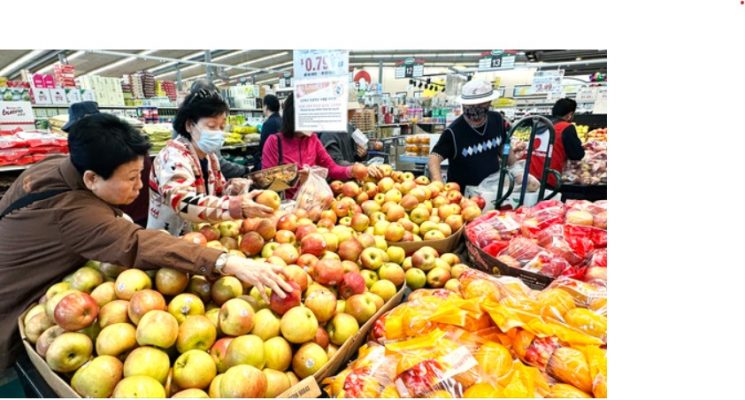Grocery inflation is reshaping how Americans shop for food, driving many toward smaller packages, tighter budgets, and heavier coupon use. Prices for key staples such as coffee and beef have risen sharply, accelerating the shift to more frugal spending habits, according to an October 15, 2025 report.
As food costs climb, consumers are cutting purchase volumes, choosing small-pack items, and seeking discounts. Soonmo Hong, director at Hannam Chain in Los Angeles, said that while food prices have gone up, “total sales remain flat because customers are buying less.”

According to the U.S. Department of Labor, from August 2024 to August 2025, coffee prices rose 20.9%, ground beef 12.8%, and bananas 6.6%. Average coffee prices reached $8.87 per pound, about $1 higher than in May, while ground beef climbed 30 cents to $6.32, a record high.
In an earnings call, Susan Morris, CEO of Albertsons, said, “Consumers are choosing smaller packages and using coupons more often. They are sticking to shopping lists and cutting impulse buys.”
Analysts attribute the price surge to rising input costs and new tariffs under the Trump administration, which have raised import prices on staples such as Spanish olive oil, Guatemalan bananas, and Vietnamese shrimp. Companies are passing part of those costs on to consumers.
Brendan Foley, CEO of McCormick, noted that “middle- and lower-income shoppers are reducing basket sizes and purchasing smaller quantities more frequently. Home cooking is up, and spending is shifting toward fresh ingredients.”
Many households are substituting lower-cost proteins and favoring home-cooked meals over dining out. Budget-conscious shoppers increasingly visit Asian markets, Aldi, and Grocery Outlet for cheaper produce and essentials.
Kristina Duong, a nurse from Orange County, said, “Beef, seafood, and eggs have become too expensive, so I look for deals at Korean and Asian grocery stores. The only thing untouched by inflation is Costco’s $4.99 rotisserie chicken.”
Experts say that while shoppers are adapting with more rational and price-sensitive habits, food demand remains largely inelastic because groceries are essential. They warn that grocery inflation may persist for an extended period.
BY EUNYOUNG LEE [lee.eunyoung6@koreadaily.com]



